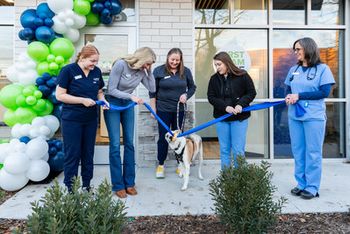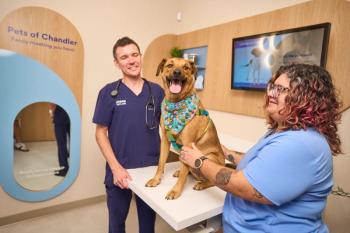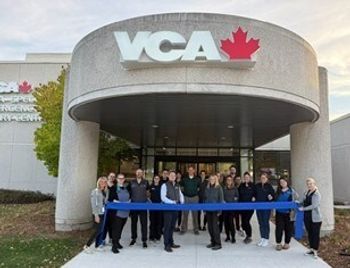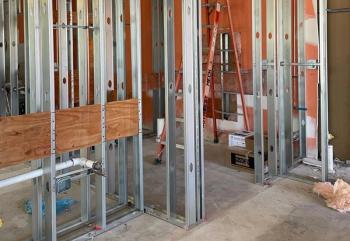Permanent standby generators
This type of emergency generator is obviously the ideal choice for animal facility use. These generators remain permanently outside the hospital. They run on an existing fuel source, either liquid propane or natural gas, so there’s no refueling, and they can generate enough wattage to re-energize your hospital only seconds after it loses power. That‘s because the permanent generator works in conjunction with an automatic transfer switch to monitor incoming electrical voltage. When your hospital‘s power goes out, the transfer switch will disconnect the main utility electrical line and connect the generator to restore power within seconds.
Due to the amount of power that permanent standby generators can provide—and the 24/7/365 certainty of response—they carry a hefty price tag. Like most technologies, however, they continue to become more affordable. A licensed electrician must install these generators, and your local utility company must be notified that you have a backup system in place.
Mobile generators
Mobile generators can provide partial power to large hospitals or full power to small hospitals. For clarity, these generators not the small portable generators one sees in use at campgrounds, tailgating or for home emergency use. These trailer-mounted generators can be owned by the hospital or rented from a commercial generator company. They are generally stored off site and transported to the hospital when needed. This might be especially useful if a permanent standby generator cannot be installed on the hospital grounds owing to zoning or other considerations.
Because these generators must be delivered and manually started when the power goes out, the time lag between the power failure and the delivery and connection of power to the hospital is a major shortcoming. Once on site, the mobile generator is connected by a cord to a manual transfer switch subpanel off your main circuit panel. As with standby generators, a licensed electrician must install the transfer switch subpanel, and your local utility company must be notified. Mobile generators run on gasoline, diesel or propane and must be refueled periodically during operation.
Before you buy
Determine any utility requirements, planning department regulations, noise ordinances or building codes. Ask your utility company and local building departments if they have regulations that govern the use of emergency power equipment. Specifically check the requirements for the use of automatic or manual transfer switches or mechanical disconnecting means to ensure the safety of power company personnel working to restore power. Permanent standby generators should always be installed by qualified technicians in accordance with utility company regulations and local and national building and electric codes.
Maintenance matters
Just like your automobile, your generator needs to be maintained regularly to ensure that it will start and run when you need it. Unlike your car, however, generators are often neglected for extended periods between power outages. This can result in generator failure during that critical time when you need it. Whether you are a do-it-yourselfer or you prefer the added security of a maintenance program, keeping your generator properly maintained is important to ensure reliable operation.
What’s the warranty?
The standard warranty for generator systems typically ranges from one to five years depending on the generator type. It’s a good idea to understand the warranty duration and coverage of your standby system, and ask for upgrade costs if you prefer increased coverage.
Conclusion
Before selecting or installing any electrical generator, speak with an experienced electrician, electrical engineer, your utility company or generator sales consultant who knows exactly what kind of generator will work best based on your needs. Regardless of which type or size of backup generator you choose, it’s a significant investment, but one that many veterinarians are willing to make to keep their hospitals and their patients safe and comfortable during the darkest of times.
Dan Chapel is president of Chapel Associates in Little Rock, Ark., a nationally recognized firm that has participated in the design of more than 800 veterinary hospitals, boarding kennels and animal shelters. Past projects include two Veterinary Economics Hospitals of the Year and several Merit Award winners. Chapel is a nationally recognized expert in the field of veterinary architecture, and has served as a featured speaker on topics of animal facility design at all major veterinary conferences.





